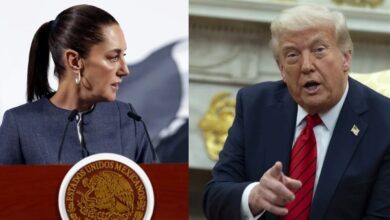U.S. Democrats Propose Bill to Curb Arms Trafficking to Mexico
A group of U.S. Democratic lawmakers introduced a bill targeting the smuggling of firearms and ammunition across the U.S.-Mexico border to dismantle criminal cartels.

Photo: Unsplash
The Latin American Post Staff
Escucha este artículo
Leer en español: Demócratas de EE.UU proponen proyecto de ley para frenar el tráfico de armas a México
Tackling Cross-Border Arms Trafficking
In a significant move to tackle the cross-border arms trafficking issue, a group of Democratic congresspersons in the United States unveiled a bill on Tuesday aimed at controlling the flow of firearms and ammunition from the U.S. to Mexico. This legislative initiative, aptly titled 'Disarm the Cartels,' mandates the Department of Homeland Security (DHS) to identify and dismantle transnational criminal organizations responsible for exporting U.S. arms and ammunition to Mexico.
The bill proposes an expansion in the collection and analysis of data regarding firearms recovered at crime scenes in Mexico. This effort is crucial to pinpoint smugglers operating within the U.S. and to curb the illicit arms trade that fuels violence and instability in the region.
Congressman Castro's Concerns
Congressman Joaquín Castro, one of the bill's proponents, emphasized the long-standing issue of U.S.-manufactured weapons exacerbating violence, instability, and forced migration across the Western Hemisphere. "The United States can, and must, do more to prevent the weapons we manufacture from falling into the hands of criminal organizations that smuggle fentanyl and other lethal drugs into the United States," Castro stated, highlighting the broader implications of arms trafficking.
Echoing Castro's sentiments, Congressman Dan Goldman pointed out the bipartisan recognition of the threats posed by fentanyl trade, human smuggling, and trafficking. However, he criticized the Republicans for overlooking the fact that the power of these cartels is significantly bolstered by the hundreds of thousands of U.S.-manufactured weapons that end up in their hands.
Addressing a Longstanding Issue
The introduction of this bill is a response to a pressing issue that has plagued U.S.-Mexico relations for years. The unchecked flow of firearms across the border has not only contributed to the escalation of cartel violence in Mexico but has also had spillover effects in the U.S., including the worsening of the drug crisis.
The 'Disarm the Cartels' bill signifies a crucial step in addressing the root causes of this transnational problem. By focusing on the supply chain of weapons and enhancing intelligence and data analysis, the U.S. aims to strike at the heart of criminal networks that rely on these arms for their operations.
Furthermore, this legislative move reflects a growing awareness within the U.S. political sphere of the country's role in international arms trafficking. The acknowledgment that U.S.-manufactured weapons are a vital component in the arsenal of Mexican cartels represents a shift in the understanding of the arms trade's global impact.
Emphasizing Collaboration Between the U.S. and Mexico
The bill also underscores the need for a collaborative approach between the U.S. and Mexico in combating organized crime. By working together to trace and disrupt the flow of arms, both nations can make significant strides in improving border security and reducing violence.
Also read: Mexico loses almost 20 billion dollars annually due to road and traffic accidents
The 'Disarm the Cartels' bill put forward by U.S. Democratic lawmakers marks a pivotal moment in the fight against cross-border arms trafficking. It proposes a comprehensive strategy to tackle a complex issue that has far-reaching implications for the United States and Mexico. Through enhanced data collection, analysis, and collaborative efforts, this bill aims to curb the flow of firearms into Mexico, thereby weakening the cartels and contributing to regional stability and security. As the bill progresses through the legislative process, it will be a topic of keen interest and debate, reflecting the ongoing efforts to address one of the most pressing security challenges in the Americas.




